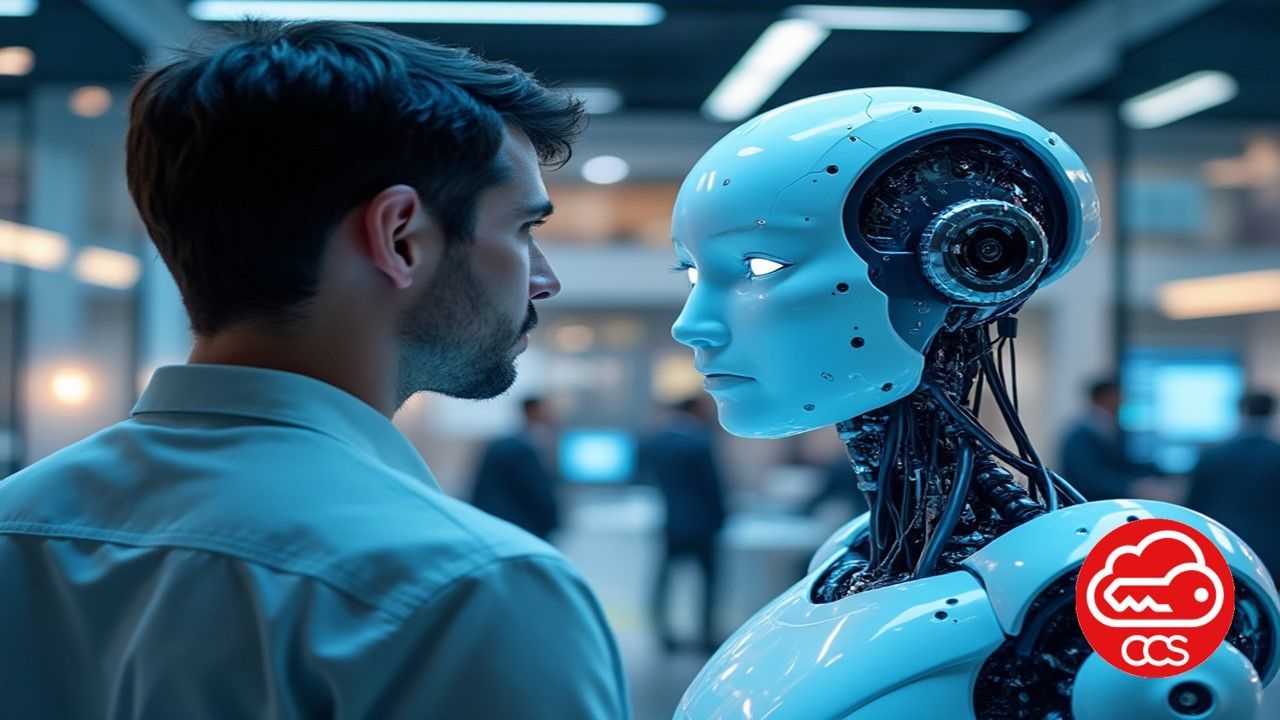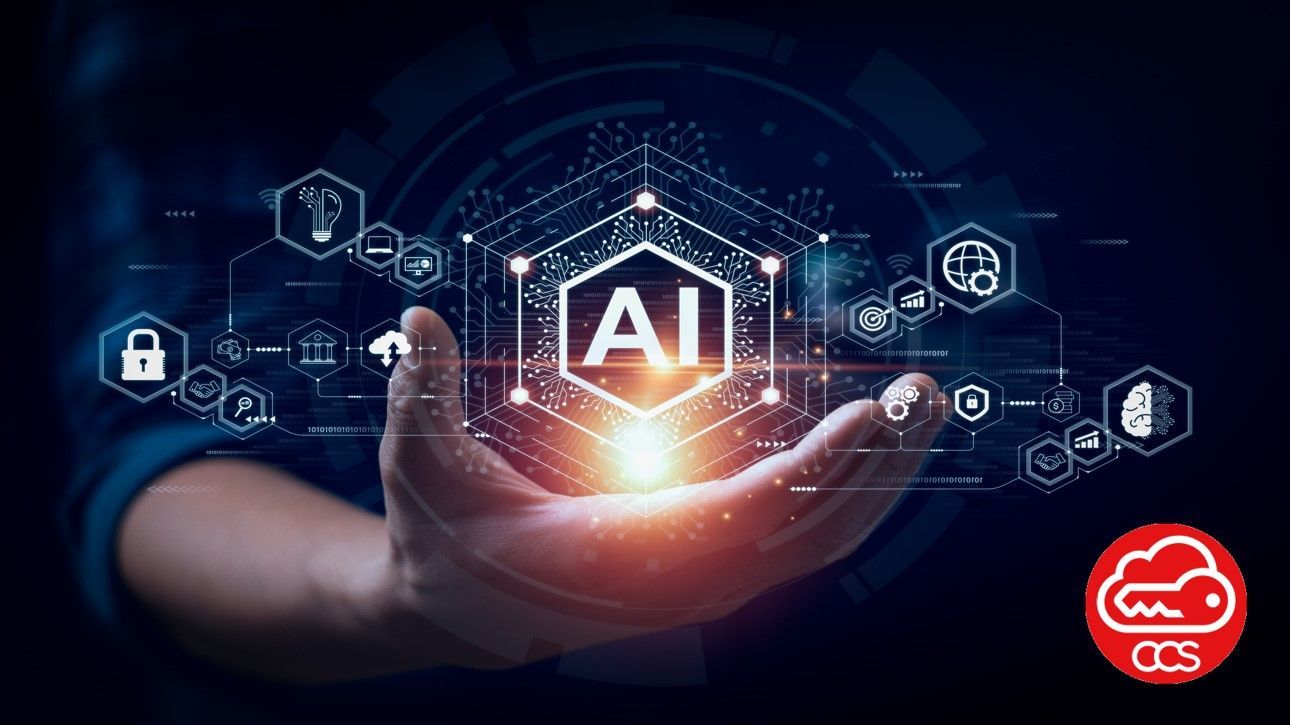Can AI Tools and Systems Replace Internal Auditors for ISO Standards?
A Comprehensive Analysis of the Pros and Cons
As artificial intelligence (AI) continues to evolve and integrate into various industries, one question looms large: Can AI replace internal auditors for ISO standards? ISO standards, such as ISO 9001 for Quality Management Systems, ISO 14001 for Environmental Management, and ISO 27001 for Information Security Management, require rigorous audits to ensure compliance and continuous improvement. Traditionally, this process is handled by internal auditors—professionals trained to assess, evaluate, and provide feedback on an organization's adherence to these standards.
With the rise of AI tools and systems, businesses are increasingly exploring the potential of using AI for auditing processes. This article will delve into the pros and cons of both AI-powered auditing tools and human auditors, offering insights into the advantages and limitations of each approach.
The Role of Internal Auditors in ISO Standards
Internal auditors play a vital role in ISO standards compliance by assessing the effectiveness of a company’s management systems. They ensure that processes align with standard requirements, identify non-conformities, and suggest corrective actions. Their responsibilities include:
- Assessing conformity with the applicable ISO standards.
- Identifying areas for improvement within organizational processes.
- Verifying corrective actions taken from previous audits.
- Ensuring continuous improvement within the management systems.
Internal auditors bring a level of experience, intuition, and human judgment that is essential in evaluating nuanced situations, understanding organizational culture, and communicating findings with leadership.
The Rise of AI in Auditing: How AI Tools Can Support ISO Audits
Artificial intelligence tools have become increasingly sophisticated, with many companies using them to streamline various business processes, including ISO audits. AI systems can automate data collection, analyse patterns, flag potential risks, and offer suggestions for corrective actions. The question is whether AI can fully replace human auditors—or whether it can serve as an augmentation to human efforts.
The Pros of AI Tools in ISO Auditing
- Efficiency and Speed
- AI can process vast amounts of data at incredible speeds, enabling organizations to monitor compliance in real-time. This can drastically reduce the time it takes to complete an audit, as AI can quickly scan documents, analyse compliance metrics, and flag deviations from ISO standards.
- Data-Driven Insights
- AI can track and analyse performance metrics over time, identifying patterns and trends that might not be immediately obvious to human auditors. For example, AI can highlight recurring issues in supply chain management under ISO 9001 or environmental compliance risks for ISO 14001.
- Consistency and Objectivity
- AI algorithms operate without the cognitive biases that human auditors might unconsciously exhibit. This allows for consistent evaluations and impartial decision-making, leading to standardized audits free from individual interpretation or bias.
- Cost-Effectiveness
- Once implemented, AI tools can reduce long-term costs associated with audits. These tools can handle a large volume of audits with minimal human intervention, cutting down on the need for multiple auditors and extensive audit times.
- Continuous Monitoring
- AI tools can be designed to continuously monitor systems for non-conformities and issue real-time alerts when standards are violated. This helps organizations respond to potential compliance issues before they escalate, supporting the continuous improvement required by many ISO standards.
The Cons of AI Tools in ISO Auditing
- Lack of Human Judgment
- While AI can process data efficiently, it lacks the human ability to interpret complex situations, understand context, and make nuanced decisions. Internal auditors bring experience, expertise, and intuition to an audit—elements that AI cannot yet replicate.
- Contextual Understanding and Flexibility
- ISO audits often require subjective analysis and a deep understanding of the company’s culture, operational environment, and industry-specific risks. AI systems are limited by the data and rules they are programmed with, making it difficult for them to adapt to changing circumstances or understand the broader organizational context.
- Dependence on Data Quality
- AI is only as effective as the data it is fed. If the data is incomplete, inaccurate, or outdated, the AI system’s analysis will be flawed. Internal auditors, on the other hand, can investigate and probe deeper when they detect anomalies, even when data is imperfect.
- Inability to Foster Collaboration and Trust
- Auditing isn’t just about identifying non-conformities; it’s also about fostering relationships with teams and encouraging collaboration for improvement. Internal auditors can provide feedback in a way that encourages teams to take corrective action, something AI lacks in terms of human interaction and motivational skills.
- Limited to Predefined Standards
- AI systems can struggle with non-standard issues that fall outside of predefined criteria. ISO audits often uncover unexpected problems that don’t fit into a predefined data set. Human auditors are able to think creatively and critically, making judgment calls on unforeseen circumstances.
The Pros of Internal Auditors in ISO Auditing
- Experience and Expertise
- Internal auditors bring years of knowledge and hands-on experience. They understand the complexities of ISO standards, organizational culture, and the specific needs of the business, which helps them interpret findings in context and offer valuable insights beyond data analysis.
- Adaptability and Critical Thinking
- Human auditors can adjust their approach based on evolving situations, spot subtleties in operational issues, and provide nuanced assessments that go beyond what AI algorithms are programmed to detect. They can also apply discretion in determining the severity of non-conformities and suggest tailored corrective actions.
- Building Relationships
- One of the strengths of internal auditors is their ability to interact with employees, fostering trust and collaboration. Their engagement can lead to a more effective audit, as employees are often more willing to share insights, challenges, and concerns with a human auditor than with an AI tool.
- Judgment and Decision-Making
- Auditors rely on professional judgment to assess risk and compliance, particularly when dealing with complex or sensitive issues. AI lacks the ability to weigh competing priorities or provide the ethical and context-sensitive decision-making that human auditors can offer.
The Cons of Internal Auditors in ISO Auditing
- Time-Intensive Process
- Human-led audits can be time-consuming, particularly for large organizations with complex processes. Scheduling audits, gathering evidence, conducting interviews, and preparing reports can take weeks or months, slowing down the overall compliance process.
- Subjectivity and Bias
- Internal auditors, like all humans, can be influenced by unconscious bias, which might affect their judgment during an audit. This subjectivity can lead to inconsistencies in audit outcomes, especially if different auditors are handling different departments or processes.
- Higher Costs
- Employing internal auditors or hiring external audit firms for regular ISO audits can be expensive, especially for small to mid-sized businesses. Salaries, travel expenses, and the time spent conducting audits all contribute to higher costs compared to AI systems.
- Inability to Continuously Monitor
- Human auditors typically perform audits periodically, such as annually or semi-annually, rather than on a continuous basis. This leaves room for non-conformities to arise between audits, potentially compromising compliance until the next audit cycle.
If You Choose AI Tools: Consider ISO 42001
If your organization decides to leverage AI tools to assist with or even replace elements of the internal audit process, it is crucial to ensure that the AI systems themselves are managed responsibly. This is where ISO 42001: Artificial Intelligence Management System (AIMS) comes into play.
ISO 42001 provides a comprehensive framework for the responsible development, management, and oversight of AI systems. It emphasizes transparency, accountability, risk management, and ethical decision-making in the use of AI, aligning with global best practices and regulatory standards.
Some key benefits of adopting ISO 42001 for AI in auditing include:
- Ethical AI Management:
- Ensures that the AI tools you are using for auditing are designed and deployed in an ethical manner, minimizing risks associated with biased algorithms or opaque decision-making processes.
- Risk Management:
- Helps identify and manage risks associated with the use of AI in internal auditing, ensuring that potential pitfalls such as data inaccuracies or security vulnerabilities are addressed.
- Transparency and Accountability:
- Provides a structure for maintaining transparency in how AI tools operate, ensuring that audit outcomes are explainable and understandable to all stakeholders.
- Compliance Alignment:
- Helps your organization stay aligned with emerging regulatory requirements for AI systems, such as the EU AI Act, which categorizes AI systems into different risk levels and imposes strict compliance rules for high-risk systems.
By implementing ISO 42001 alongside AI-driven auditing tools, businesses can ensure that their use of AI is not only efficient but also ethically sound and compliant with the latest international standards.
Can AI Replace Internal Auditors? The Best of Both Worlds
While AI offers tremendous potential for improving the efficiency and scope of ISO audits, it is unlikely to fully replace internal auditors—at least in the foreseeable future. AI excels at data processing, identifying trends, and ensuring consistency, but it lacks the human judgment, flexibility, and interpersonal skills that are essential for comprehensive audits.
A hybrid approach that leverages the strengths of both AI tools and human auditors may be the best solution. AI can automate repetitive tasks, provide real-time insights, and flag potential issues, while internal auditors focus on high-level analysis, problem-solving, and communication with teams. This partnership can lead to more efficient, thorough, and accurate audits, helping organizations maintain compliance while also fostering continuous improvement.
Finding the Right Balance
In conclusion, AI tools and systems can certainly support the internal audit process for ISO standards by offering efficiency, consistency, and data-driven insights. However, they cannot yet fully replace the role of internal auditors, who provide critical thinking, adaptability, and human interaction that AI lacks. A blended approach, using AI to assist human auditors, is likely the most effective way forward, offering businesses the best of both worlds: technological innovation and human expertise.
For organizations that choose to adopt AI in their auditing processes, ISO 42001 offers a crucial framework for ensuring that AI systems are managed responsibly, ethically, and in compliance with global standards.




